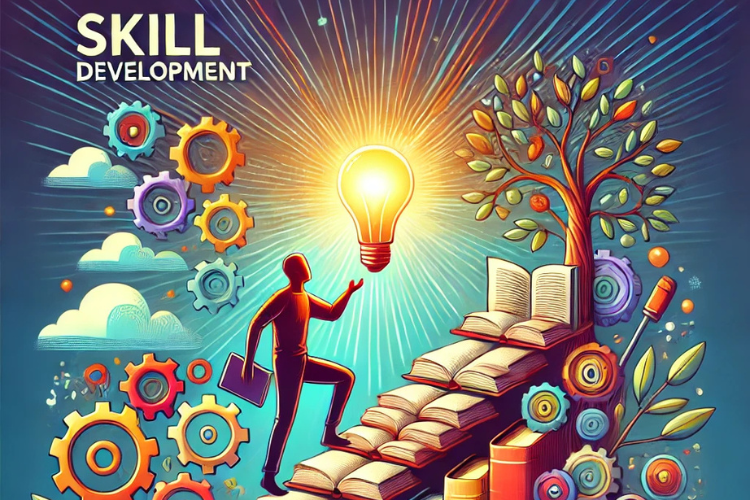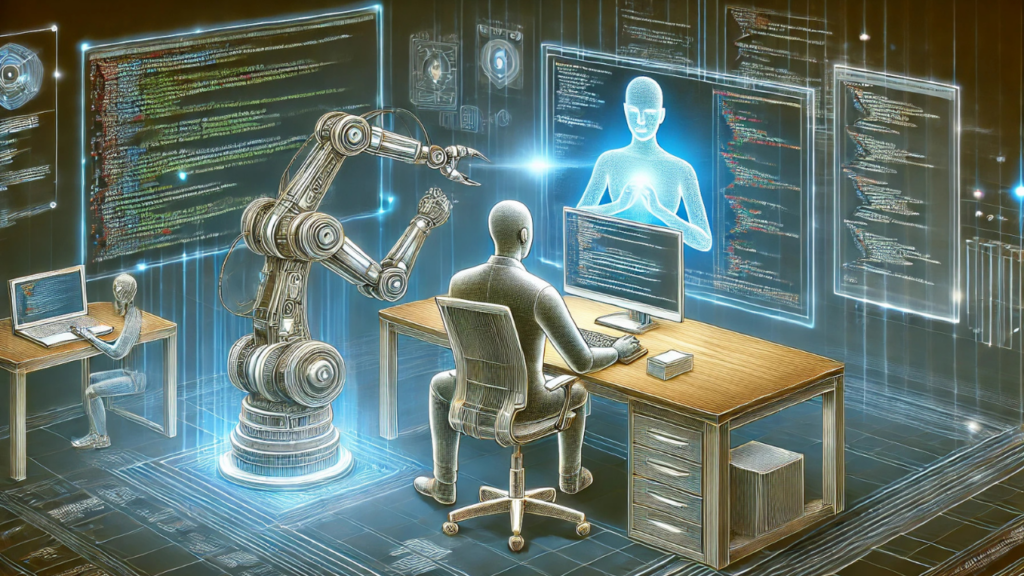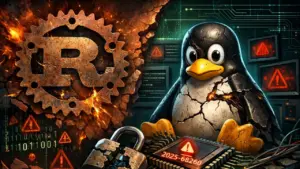Introduction
The rise of artificial intelligence (AI) has sparked endless debates. One of the most common misconceptions is that AI can fully automate software development. While AI has made remarkable progress, the belief that it will replace developers is far from accurate. Developers’ unique skills, creativity, and adaptability remain essential.
In this article, we’ll debunk the myth that AI will take over software development. We’ll explore five key reasons why skilled developers are irreplaceable and how AI serves as a helpful tool rather than a substitute.
Before diving in, have you explored AskMany.ai? This innovative platform lets you query multiple AI models like ChatGPT, Google Gemini, Meta Llama, and Mistral in one click. It even offers direct chatting with these models in a single window. Tools like this showcase how AI is transforming the tech world without eliminating the need for human expertise.
The Misconception About AI and Automation
AI’s advancements have led many to believe that it can automate the entire software development process. Tasks like coding, debugging, and testing are now partially automated. However, these improvements don’t eliminate the need for human developers. Instead, AI enhances productivity, leaving room for developers to focus on complex and creative tasks.
While AI might excel in specific, repetitive tasks, it lacks the ability to make critical decisions, understand intricate project requirements, or innovate. The misconception arises from overestimating AI’s capabilities and underestimating the nuanced skillset of developers. Let’s uncover why skilled developers remain the backbone of software development, despite AI’s growing influence.
5 Key Points Why We Still Need Developers
1. Creativity and Innovation
AI follows predefined algorithms. It lacks the ability to think creatively or generate original ideas. Developers, on the other hand, excel at brainstorming unique solutions to problems. They can innovate, conceptualize, and create software that aligns with user needs and business goals.
For example, consider building a user-friendly e-commerce app. While AI might optimize the layout or suggest design changes, only a developer can understand user pain points and craft a truly intuitive experience. Creativity is essential for adapting to new challenges, and this is where developers outshine AI systems.
Moreover, creativity is not limited to design. Developers innovate in architecture, scalability, and optimizing performance. They can envision long-term solutions that AI tools cannot predict, given their inherent limitations to predefined scenarios.
2. Handling Unpredictable Scenarios
AI operates within the boundaries of its training data. It struggles with edge cases or unpredictable situations. Human developers shine in these moments. They analyze problems, adapt, and find solutions that AI systems cannot anticipate.
Imagine a payment system encountering an unusual transaction pattern. While AI might flag it as an anomaly, a developer can investigate, identify the issue, and implement a fix. This flexibility is vital in ensuring reliable and robust software.
Unpredictable scenarios also occur during system integration, migrations, or real-time monitoring. AI might fail to adapt quickly, whereas developers use their expertise to troubleshoot and resolve issues dynamically. This ability to respond to uncertainty makes developers indispensable.
3. Enhancing, Not Replacing Productivity
AI’s strength lies in automating repetitive tasks. Tasks like code generation, testing, and debugging become faster with AI. This allows developers to focus on higher-level tasks that require human judgment and creativity.
For instance, AI can generate boilerplate code, but developers decide how to integrate it into a broader system. By reducing tedious work, AI enhances efficiency rather than replacing human expertise.
Productivity is also about strategic thinking and prioritization. Developers utilize AI tools to streamline workflows but still rely on their judgment to balance competing priorities. The human element ensures the right features are built at the right time, aligning with business and user needs.
4. The Need for Ongoing Skill Development
The tech world evolves rapidly. Developers constantly update their skills to keep up with new languages, frameworks, and methodologies. AI tools, while powerful, rely on developers to train, maintain, and improve them.

To remain competitive, developers must embrace AI as a supportive tool. Learning how to leverage AI effectively can boost their productivity and career growth. This symbiotic relationship highlights the importance of skilled developers in an AI-driven world.
Moreover, AI itself requires developers to function optimally. From training machine learning models to refining algorithms, developers play a central role in ensuring AI systems perform accurately and reliably. Continuous skill development ensures developers stay ahead of the curve and maintain their relevance in a rapidly changing industry.
5. The Human Touch in Software Development
Successful software doesn’t just work—it resonates with users. Developers bring empathy and understanding to the table. They can design applications that address human needs, ensuring a seamless user experience.
AI, for all its advancements, lacks emotional intelligence. It cannot gauge how users feel about an interface or predict how they might interact with a feature. Developers fill this gap by creating software that is not only functional but also user-friendly and engaging.
The human touch extends beyond user interfaces. Developers anticipate future needs, incorporate feedback, and iterate on solutions in ways AI cannot replicate. This adaptability ensures that software evolves in alignment with user expectations and industry trends.
Conclusion
AI has undoubtedly revolutionized software development. It accelerates workflows, automates repetitive tasks, and assists in debugging. But it will never replace the creativity, adaptability, and human touch that developers bring.
Skilled developers remain irreplaceable because they think beyond algorithms. They handle unpredictability, design innovative solutions, and ensure that software meets human needs. By embracing AI as a tool, developers can amplify their capabilities and stay ahead in this dynamic field.
AI is a catalyst for progress, but it cannot replace the human mind’s ingenuity. The future of software development lies in collaboration between humans and machines, where each complements the other’s strengths. As platforms like StartupHakk continue to emphasize, leveraging AI effectively can propel developers to new heights, blending technology with human expertise to shape a transformative future.
Call to Action
Are you ready to embrace the future of software development? Keep refining your skills, explore tools like AskMany.ai, and stay ahead of the curve. AI isn’t a replacement—it’s an ally in crafting exceptional software solutions. By combining your expertise with AI’s capabilities, you can shape the future of technology with confidence.




